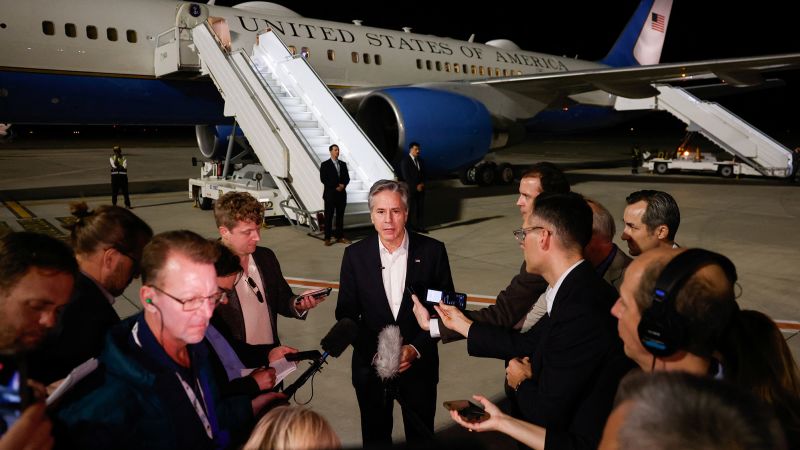US Secretary of State Antony Blinken will return to Egypt without visiting Israel, amid doubts that a ceasefire and hostage deal can be reached before President Joe Biden leaves office. Blinken typically uses his visits to Israel to press for critical issues surrounding the conflict, but Israeli Prime Minister Benjamin Netanyahu has rebuffed the US administration following these meetings. Public optimism around a quick resolution of the conflict has largely vanished since Blinken’s last visit in August.
The State Department announced that Blinken will meet with Egyptian officials to discuss ongoing efforts to reach a ceasefire in Gaza that secures the release of hostages, alleviates the suffering of the Palestinian people, and establishes broader regional security. Egypt is a critical player in these efforts, but a major breakthrough is unlikely as the agreement depends on the political will of Netanyahu and Hamas leader Yahya Sinwar. US Ambassador Linda Thomas-Greenfield emphasized that reaching an agreement ultimately depends on political will.
While Blinken is in Egypt, the families of US hostages held by Hamas will be visiting Washington, DC, to urgently push for a deal to release their loved ones. However, a timeframe for next steps remains elusive, as the US proposal to bridge differences between Israel and Hamas has not been presented to both sides. US officials have accused Hamas and Netanyahu of adding new demands and conditions to the negotiations, leading to a lack of progress in reaching a ceasefire and hostage deal.
Recent comments from US officials have expressed caution and uncertainty about the progress of the negotiations. Despite claims that the majority of details of the first phase of the agreement have been worked out, the remaining sticking points relate to the withdrawal of Israeli forces from Gaza and the exchange of hostages for Palestinian prisoners. Blinken remains optimistic about resolving these issues but acknowledges that the last few steps can be the hardest.
Netanyahu’s public comments have complicated the negotiations, with conflicting statements about the proposed bridging proposal and the likelihood of reaching a deal. While US officials have refrained from directly criticizing Netanyahu, there is a sense of frustration over the lack of progress and the political challenges involved in the negotiations. Blinken has emphasized the importance of both parties finding common ground to resolve the remaining issues related to the ceasefire and hostage deal.
Overall, the situation in the Middle East remains complex and uncertain, with various parties involved in negotiations and conflicting interests at play. Despite ongoing efforts by the US and other countries to facilitate a resolution, the lack of political will from Netanyahu and Hamas leader Sinwar presents a significant obstacle to reaching a ceasefire and hostage deal in the region. The visit to Egypt by Blinken highlights the ongoing diplomatic efforts to address these challenges and work towards a peaceful solution to the conflict.


